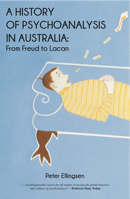Freud loved and respected literature. He not only read the classics for inspiration, but credited novelists, such as Lytton Strachey, and Arthur Schnitzler, (upon whose writing Stanley Kubrick’s film, Eyes Wide Shut, is based), as best grasping his work. Despite striving for scientific precision, Freud famously admitted that his case studies read more like novellas, […]

Failing for success
At a time when positive psychology is gaining ground, I want to ring the bell for the maligned art of coming to grips with failure. This is not a morbid preoccupation, but a wish to embrace possibility. As we approach the centenary of Anzac Day, it is worth reflecting that the myth sustaining Australian identity […]

Know Hope or Know yourself
What is the best we can expect? Is it, as graffiti on a bridge over the Yarra advises: to “Know hope”, or is it to put hope aside and know where we actually are? I pose these two as alternatives because that is how they seem to me. Perhaps it is my quirkiness: But I […]

Even the truest writing is false
Even the truest writing is false. It can’t be otherwise. Despite the best intentions, words fail. They carry our bias as much as our clarity. This is because writing is unnatural. To write well is to arrive with hands bloodied by platitudes, that is, to have been painstakingly selective with language. Such effort, while productive […]

The past that haunts us
In Milan Kundera’s The Book of Laughter and Forgetting, inconvenient truths are dealt with by erasure. It is a crude but effective measure and means that politicians out of favour are painted from the pictorial record. I witnessed something similar after the Tiananmen Massacre in Beijing when China’s rulers turned what had been a pro-democracy […]

Literary sources of diagnosis
On the eve of the publication of the latest installment of the psychiatric bible, the Diagnostic and Statistical Manual of Mental Disorders (DSM), let me propose an alternative. No, not the ICD, International Classification of Mental and Behavioural Disorders, but rather what actor Hugh Grant told an American TV when badgered to ‘get counselling’. Grant’s […]

The disjunction of death
We don’t tell the truth about life: you just have to look at the media to see that. But it is less obvious that we dissemble about death. I am not talking about the way death in our culture is sanitised; I am referring to an understanding of what it means for life to end. […]

Progress
Progress is a funny thing. Not just because, as the French say, ‘the more things change the more they stay the same’, but because some aspects of us are resistant to updating. Despite my affection for vinyl, turntables and valve amplifiers, this does not appear to be true of music. Not only have the old […]

What is good therapy?
What is good is nearly always confused with what succeeds, or what appears to work. But as the latest Hollywood conflation of good reveals, that is a marketing ploy. On the Road, based on Jack Kerouac’s 1957 novel, posits good as synonymous with young, but despite being a good-looking film, it is self-adoring rather than […]

What do we talk about when we talk about love?
Raymond Carver came up a memorable title for his 1981 collection of short stories. As a moniker, What do we talk about when we talk about love has it all. It points to the impossibility of coming up with exhaustive definitions of what we most value. Love, it tells us, is not a statistic, nor […]
